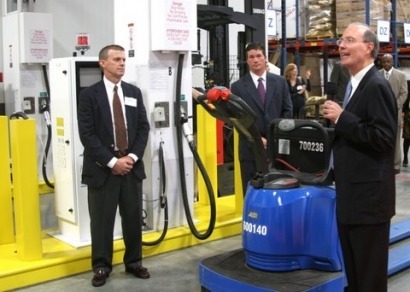
Fuel cells have become one of the fastest growing industries in recent years. From governments to private businesses and even academic institutions, all are collaborating to produce fuel cells and to find methods of improving their efficiency.
Fuel cells have the capability to produce electrical power in an efficient manner and without causing any pollution. In the process, fuel cells also produce heat and water as by-products. There are many different types of fuel cells found today, which are competing with other energy conversion devices such as the gas turbine and batteries.
In light of the many advances that are occurring at a rapid pace in this industry, Taiyou Research decided to analyse the global fuel cells market, and recently published a report on its findings.
The report analyses the basics of fuel cells, including fuel cell designs, components and functions, stacking of fuel cells, availability of fuel for fuel cells, and other features of fuel cells that make them such an attractive option for generating electrical power.
It also looks at fuel cell efficiencies and life cycle analyses, and includes a strategic and diagrammatic representation of the same.
Various types of fuel cells are analysed including alkaline fuel cells, direct methanol fuel cells, phosphoric acid fuel cells, and solid oxide fuel cells; while the many applications of fuels cells in distributed power generation, portable power, residential power, and transportation are covered.
The Taiyou Research report highlights the challenges facing the commercialisation of fuel cells, including high capital costs, environmental impact, and availability of hydrogen; as well as looking at the interaction between renewable energy carriers and fuel cells.
The report undertakes an in-depth analysis of several types of fuel cells including alkaline fuel cells, microbial fuel cells, micro fuel cells, polymer electrolyte fuel cells, and solid oxide fuel cells.
An analysis of hydrogen production sources such as through coal gasification, biological and photobiological systems, electrolysis, industrial wastes, and other sources is included.
Taiyou Research also focuses on what fuel cells can be used for: auxiliary power, military use, cogeneration or combined heat and power, small-scale energy consumption, light traction vehicles, and road vehicles, etc.
The strategic analysis is completed with an analysis of fuel cell markets by country, covering Canada, China, India, Germany, Japan, and the United States.
[Photo: Bruce Luff of Air Products, Scott Kliever of Sysco Houston and Andy Marsh of Plug Power at a hydrogen fuel cell demonstration.]
For additional information:

